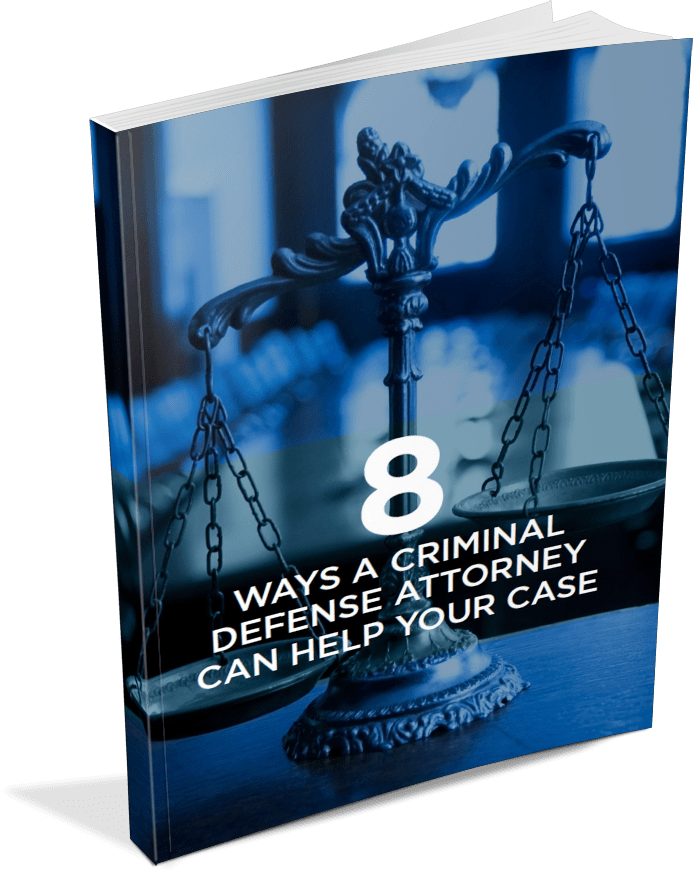
Defending a rape charge, even a false one, mean the odds are stacked against you. You need a sex crime attorney with proven experience and results.
Being accused of sexual assault is one of the most difficult things a person can face. In today’s climate of quick rush to judgement, sensational media coverage and public shaming, the rule “innocent until proven guilty” seems to not apply — especially for those implicated in a serious sex crime such as rape.
A person who is accused of sexual assault or rape will often find that everyone around them suddenly wants to pry into their private life and learn every detail, but this doesn’t mean they should be let in.
There are three groups the accused will often find doing most of this prying, and they include:
- Investigators. It’s often easy for wrongly accused persons to see investigators as their allies since it’s assumed they will only come to a conclusion of innocence, but this isn’t always the case. Investigators are human and this means they may assume guilt and work towards proving it, and this is why defendants should insist a search warrant be obtained before any searches take place.
- Attorneys. The attorney of the person making the claim will often work with investigators or private detectives to try and obtain information about the accused. Defendants should not be intimidated by any demands an attorney makes since this often indicates that legal action isn’t working to get the attorney what they want.
- Family & friends. There are even instances where investigators or an attorney will try to use family and friends to get information about a case. Defendants should be cautious when talking to others about the circumstances of their case, as this information may be relayed back to those prosecuting the case.
Not only does a rape charge bring serious legal repercussions, but it often leads to the accused person’s reputation being irreparably damaged. Those facing this type of criminal charge should take immediate action to ensure the facts and evidence aren’t twisted and used against them in the courtroom.
Rape is a serious crime. One false accusation can ruin your life and reputation forever.
Have you or a loved one been accused of rape? Know your rights.
You need one tough criminal defense lawyer.

Attorney Matthew D. Sharp
Being charged or accused of a crime is a frightening experience, especially when the allegation is false.
I believe everyone deserves a second chance. My job is to defend YOU.
Results Matter.
My results-driven approach means I can bring invaluable insights from past victories to help in your case.
State of Texas v. JB
Sexual Assault
Harris County Court – Jury trial
Not Guilty
State of Texas v. JP
Prostitution
Harris County Court
Pretrial Intervention
State of Texas v. MS
Prostitution & unlawful carrying of a weapon
Harris County Court – Jury trial
Not Guilty
(ON BOTH CHARGES)
Possible Defenses Against a Rape Charge
While statistically rare, some allegations of rape made against a defendant may be false. Why do they happen? What are the motives? Perhaps the false accuser has an axe to grind, needs an alibi, or is seeking attention or sympathy. Or they may seek some kind of material or emotional gain. A disturbed mental state may also explain a false rape allegation. The motives behind a false allegation are often deep and complex. Your defense attorney must possess the right skill and knowledge of how to unveil these underlying factors.
Besides looking at motives for a possible false allegation, other common defenses used to dispute rape and sexual assault charges in Texas include:
- The Improper Investigation Defense. Asserting that the evidence used in the case was obtained illegally and unlawfully, and/or that police failed to follow proper procedure in their investigation or arrest; thus allowing certain evidence to be excluded from trial.
- The Consent Defense. Admitting that the sexual act did occur, but arguing that it was consensual.
- The “Never Happened” Defense. Saying that the alleged rape never occurred; only possible if no real evidence exists of the assault (he said/she said).
- The Mistaken Identity Defense. Claiming that the rape victim erroneously identified you as the perpetrator; common in stranger rapes where the defendant is picked out of a lineup.
A skilled criminal defense attorney at the Law Office of Matthew D. Sharp will evaluate the facts in your case for inconsistencies. The prosecution must convince the judge or jury that the defendant acted with the intent to rape the victim beyond a reasonable doubt. Evidence in rape cases must support the victim’s claims. Any discrepancy in the victim’s testimony or in the evidence may be grounds to have charges of rape dismissed.
What is Rape?
Rape is the illegal act of forcing oneself upon another in non-consensual sexual intercourse. It can also occur when a person has sex with a victim who cannot consent to the act due to being unconscious, drunk or incapacitated.
The state of Texas prosecutes rape cases as the following types of assault:
- Sexual assault is unwarranted sexual activity between a perpetrator and his victims. It includes non-consensual sexual contact as well as forced sexual intercourse.
- Aggravated sexual assault is a sexual act that is enforced with violence, the use of a weapon or threats of death or kidnapping. Punishments for this charge are more severe.
Once a victim files a complaint of rape against an alleged defendant, the police will request physical evidence from medical professionals. If the victim knows who raped them, they will report that to the police who will pursue the conviction.
Continue reading: Rape vs. Sexual Assault in Texas: Do You Know the Difference?
Different Types of Rape
There are many different forms of rape. Some are considered more severe than others, and result in more severe punishments if convicted. Types of rape are typically classified into categories based on the relationship between the person who committed the rape and the victim, as well as the specific actions involved in the rape.
- Date rape. When there is forced, non-consensual sexual intercourse with a date, a friend or other acquaintance with whom the victim has a continuous relationship (also referred to as “acquaintance rape”).
- Spousal rape. When a person’s current or previous partner (either married or unmarried) forces unwanted sexual behavior through physical, psychological or emotional abuse (also known as “partner rape” or “marital rape”).
- Statutory rape. A sex crime that happens between an adult and a victim under the age of 17 who is not his or her spouse (also known as “age-related rape”).
- Gang rape. When a group of people (at least two or more) participate in the rape of a single victim.
- Stranger rape. When the victim of the sexual violence doesn’t know the perpetrator at all, and the rape occurs during a home invasion, in a dark alley or in some other public place.
- Aggravated rape. When a rape is considered especially violent in nature, such as forcing sex by threatening death or serious bodily injury, forced sex acts involving an unconscious or drugged victim, or sexual assault on children under the age of 14 (under Texas law).
- Family rape. A type of rape that occurs between two people who are closely related (in other words, they are family), such as a sex act between parent and child, uncle/aunt and nephew/niece, etc (also known as “incest”).
There are many other types of rape and sexual violence that are considered a punishable criminal offense in Texas. A conviction of rape in the state of Texas can have serious legal and social consequences for a defendant.
Punishments for Rape Under Texas Criminal Law
In Texas, rape cases are prosecuted as felonies. A conviction of sexual assault is a second-degree felony. Punishments include a prison sentence of two to 20 years, a lengthy term of probation and lifetime registration as a sex offender.
Aggravated sexual assault cases are more serious as they are violent crimes. If convicted, a defendant may be ordered to prison for five to 99 years. The defendant may also be sentenced to probation and required to register as a sex offender with the state of Texas.
Since the punishments for rape are so severe, it’s important for those who are accused of this crime to speak to a knowledgeable rape defense attorney as soon as possible.
Free E-book
8 Ways a Criminal Defense Attorney Can Help Your Case
Unsure where to go for help after getting arrested? Learn more about how hiring an experienced criminal defense attorney will help your chances at freedom.

Talk to a Trusted Houston Sex Crime Attorney for Free
Being innocent doesn’t mean a person should simply wait for the legal system to make a judgment. It’s important to be proactive during the sex crime investigation. Contrary to popular belief, taking action to defend yourself will NOT make you look guilty, but rather it is the best thing you can do to protect yourself against a false interpretation of the events.
In addition to contacting a defense attorney immediately, here are two ways people accused of rape or sexual assault can assist in their defense:
- Gather evidence. Defendants should gather all evidence related to the alleged sexual assault and make copies or take photographs (if possible) before turning any of it over to investigators.
- Gather witnesses. There are many instances where a case involving sexual assault comes down to the character of the accused and victim. Defendants should gather witnesses that can attest to both their character and add any relevant insight into the events surrounding the charge.
It’s true that a single accusation can destroy a person’s good reputation that took them a lifetime to build in a matter of mere minutes. If you’re facing sexual assault or rape charges, then it’s important to get legal guidance…and fast. Allow us to review your case for free.
Houston rape defense attorneys at The Law Office of Matthew D. Sharp realize the anxiety experienced by those charged with sex crimes. Our compassionate lawyers are available through each step of a case to answer your questions and keep you updated. We will treat you like a real person, not a case number.







